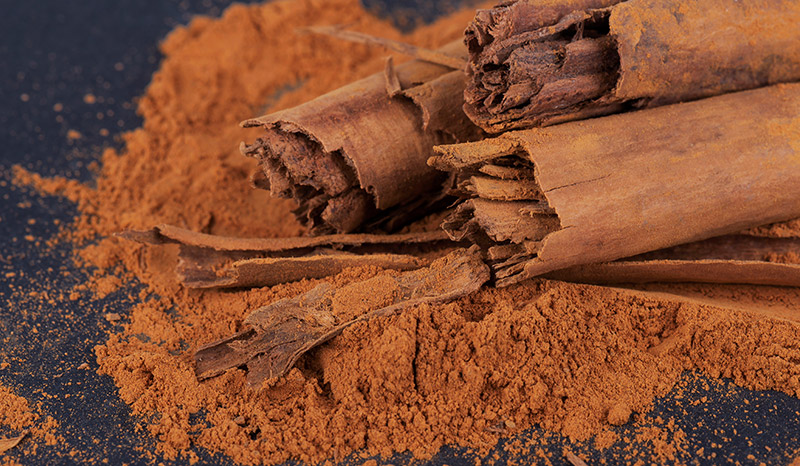CEYLON CINNAMON VS CASSIA
Cinnamon has long been used in sweet desserts, baked goods, and curries for its warm and spicy flavor. An essential addition to any decent kitchen, this amazing spice is harvested by scraping the inner barks of tropical Cinnamomum trees, and then being dried until it curls into cinnamon sticks. However, while cinnamon is widely available in both stick and powdered form in most supermarkets, there is a key difference between the varieties available and the one that you should be choosing.
In short, there are two types of cinnamon available: Ceylon Cinnamon and Cassia Cinnamon.
The Sources of Cassia and Ceylon Cinnamon
While the world’s entire supply of cinnamon comes entirely from Asia, there is one key difference between the source of the two varieties. Namely, that cassia cinnamon (or Chinese cinnamon) is the more common kind, and it is mostly grown in East Asian countries like China, Indonesia and Vietnam. It is harvested from the Cinnamomum cassia tree, and is widely considered to be of lower quality than Ceylon cinnamon. It is cheaper to buy and more widely available in supermarkets than Ceylon cinnamon, but that isn’t necessarily a good thing.
Ceylon cinnamon is indigenous to the island of Sri Lanka. Made out of the inner bark of the Cinnamomum verum tree, Ceylon cinnamon is sometimes called “true cinnamon”, and it is far less commonly available to purchase. With its premium tag, Ceylon cinnamon can be pricier than Chinese cinnamon, but it also comes with a much better nutritional profile for its health benefits.
The Pure Ceylon Cinnamon Hot and Cold Brews from Nature’s Rare uses ethical, sustainable harvesting of Ceylon cinnamon, straight from the fields of Sri Lanka. The range contains no added caffeine, preservatives, or artificial flavors, and its organic farming ensures that the local plantation sector is uplifted in the process. Drinking cinnamon tea is an easy way to add this superfood to your diet, and the organic tea from Nature’s Rare is an enjoyable and nature-conscious way to take care of your health. In addition, unlike other cinnamon teas that simply include cinnamon flavoring, we use actual organic cinnamon, ensuring that you receive the full benefits of the spice.
Choosing the best Cinnamon
The difference between cassia and Ceylon cinnamon does not only lie with where they are grown. Cassia produces a darker and rougher cinnamon stick than Ceylon cinnamon, which is lighter and comes with a softer and more desirable texture. In addition, while Ceylon cinnamon produces a mild, delicate flavor that makes it ideal for desserts, cassia cinnamon is more overpowering with its strong, spicy taste.
The most important difference, however, is that a chemical compound called coumarin can be found in the cassia cinnamon plant.
Coumarin is harmful to humans in large doses, and has been known to cause severe problems like kidney, liver and lung damage. It has even been shown to cause cancer. Consuming as little as two teaspoons of cassia cinnamon a day is enough to take a person over the tolerable daily limit of coumarin. Meanwhile, Ceylon cinnamon contains low enough levels of coumarin that it is barely detectable in the spice. For this reason, Ceylon cinnamon is often recommended over cassia as the best type of cinnamon for health.
But what exactly are the health benefits of cinnamon?
The Health Benefits of Ceylon Cinnamon
Regularly consuming Ceylon cinnamon can lead to a host of health benefits. Not only does the spice taste great, but it may:
- Lower levels of LDL (“bad” cholesterol) and increase HDL (“good” cholesterol) in our blood.
- Lower blood pressure for short periods of time.
- Relieve pain from menstrual cramps in women.
- Prevent cancerous cell development.
- Prevent tooth decay and fight bad bready with its antibacterial and antifungal properties.
- Reduce blood sugar levels by increasing insulin sensitivity.
Consuming Ceylon cinnamon on a regular basis can be a great way to boost your health. Taking as simple a step as drinking Cinnamon Brew from Nature’s Rare first thing in the morning will go a long way towards taking care of our wellbeing.

